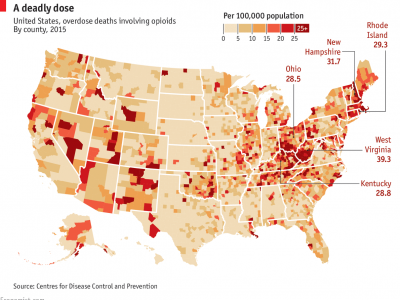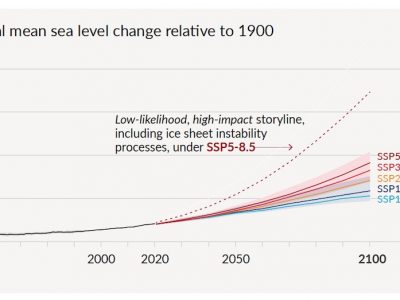Regulatory Policy
Major Questions About the Major Questions Doctrine
You may not have heard of this doctrine but it’s a big threat to innovative regulations.
Unless you’re deeply immersed in administrative law, you may not have heard of the major questions doctrine. It’s a legal theory that conservative judges have used with increasing rigor to block important regulatory initiatives. The doctrine places special obstacles on agency regulations of issues of “major economic and political significance.” In its initial outing, the …
Continue reading “Major Questions About the Major Questions Doctrine”
CONTINUE READINGCost-Benefit Analysis: FAQs
Cost-benefit analysis has been a key part of the regulatory process since 1980. Here’s how it works.
Cost-benefit analysis is required for all major regulations. It’s also highly controversial, as well as being a mysterious procedure unless you’re an economist. These FAQs will tell you what you need to know about how cost-benefit analysis (CBA) fits into the regulatory process, how it works, and why it’s controversial. Q: Let’s start with a …
Continue reading “Cost-Benefit Analysis: FAQs”
CONTINUE READINGClimate and Colonialism: Some Columbus Day Thoughts
Is climate change itself a form of colonialism?
“In 1492, Columbus sailed the ocean blue.” That’s what we learned in my grade school. Today, Columbus Day remains a day of celebration for some but has become a symbols of colonialism for others. Rather than entering that debate, I’d like to reflect on how issues of colonialism might relate to climate change. The study …
Continue reading “Climate and Colonialism: Some Columbus Day Thoughts”
CONTINUE READINGWhen Agencies Fail
Lives can be lost when agencies fall down on the job.
What happens when agencies fail in their jobs? People can die. The most dramatic example is the opioid crisis, in which a whole series of state and federal agencies fell short. The result has been hundreds of thousands of deaths. The FDA was one of the prime culprits. It bought into a myth, carefully cultivated …
Continue reading “When Agencies Fail “
CONTINUE READINGVacancy
A Key White House regulatory office has remained unfilled for a record time.
The Biden Administration is looking to make big regulatory changes, not least regarding climate change. Yet the White House office overseeing regulations is vacant. The obscurely named Office of Regulatory Affairs and Information (OIRA) has to sign off on all significant regulations. Even the dilatory Donald Trump had nominated a permanent administrator by July of …
CONTINUE READINGWhat If We Succeed?
If we “beat” climate change, what will we have to show for it?
Suppose we bring climate change under control and deal with its fallout. What will have we achieved? We will have prevented great harm. That, of course, is the main goal. Untamed climate change means an dangerous, ugly future for all of us on “Spaceship Earth.” Preventing that future is surely enough of a reason to …
Continue reading “What If We Succeed?”
CONTINUE READINGHot off the Press: The New IPCC Report
The latest science confirms the need for urgent action.
The IPCC issued the massive first volume of its new report on climate change on Monday. This volume focuses on climate science: how much will the world warm, and what will the impacts be? The bottom line is that the evidence is becoming ever firmer that (a) humans are causing an unprecedented rate of climate …
Continue reading “Hot off the Press: The New IPCC Report”
CONTINUE READINGUnintended Consequences Create Challenges for Utility Regulators
Making sure that regulatory incentives do what the regulators intended.
In a new post, Dan Farber mentions performance-based regulation as a promising tool for encouraging energy utilities to be enthusiastic in supporting the transition to clean energy sources. There are a lot of people who agree with him. After all, traditional utility regulation tends to encourage the companies to overspend on infrastructure and under spend …
Continue reading “Unintended Consequences Create Challenges for Utility Regulators”
CONTINUE READINGThe Opioid Epidemic and Vaccine Hesitancy
The places hit hardest by opioids are often skeptical of vaccines. That’s probably not a coincidence.
The opioid crisis was the product of corporate greed run amok and a corrupted regulatory process. That crisis may have amplified deep distrust of the pharmaceutical industry and its government watchdogs — distrust that may now be reflected in vaccine skepticism. First, a little history. The manufacturer, Purdue Pharma, aggressively promoted the use of oxycontin, …
Continue reading “The Opioid Epidemic and Vaccine Hesitancy”
CONTINUE READINGCalculating the Extinction Cost of Carbon
Or, how many megatons do we need to cut to prevent one extinction?
Economists often talk about the social cost of carbon, which basically translates the harm done by a ton of CO2 into dollars. The dollar metric is less useful as applied to ecological impacts like species extinctions than impacts of humans. It may be better to skip the dollar conversion, and just ask how much a …
Continue reading “Calculating the Extinction Cost of Carbon”
CONTINUE READING











